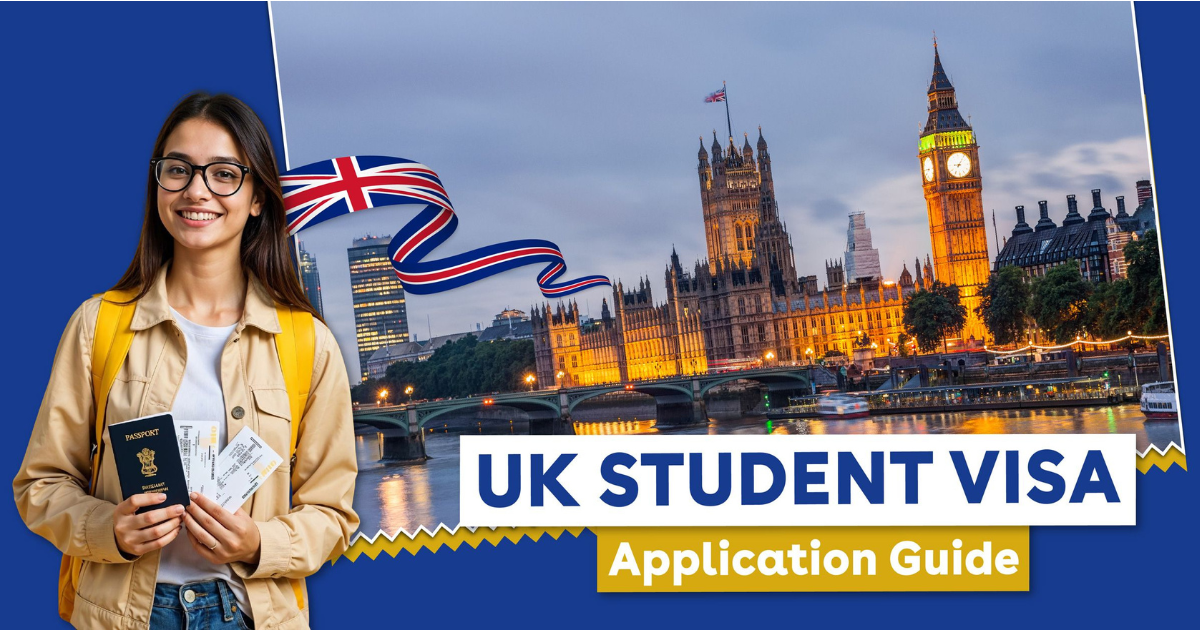UK Student Visa Requirements – Updated Guide for 2025
Studying in the United Kingdom is a popular choice for international students seeking quality education and global career opportunities. However, obtaining a UK student visa is a crucial step before you can embark on your academic journey. The UK Student visa (formerly Tier 4 visa) rules have been updated to reflect changes in immigration policies for 2025. This guide provides a clear overview of the requirements, application process, and essential tips for prospective students.
1. Eligibility Criteria
To be eligible for a UK Student visa in 2025, applicants must:
- Have an offer from a licensed Tier 4 sponsor:
You must have an unconditional offer from a recognized UK educational institution licensed to sponsor international students. - Be accepted for a full-time course:
The course must meet the Home Office’s requirements in terms of duration and level of study. - Demonstrate English language proficiency:
Applicants must prove their ability to communicate in English, usually by passing an approved English language test such as IELTS or TOEFL at the required level for their course. - Show sufficient financial resources:
You must provide evidence that you have enough funds to cover tuition fees and living costs during your stay.
2. Financial Requirements
One of the most important parts of the application is proving you can financially support yourself:
- Tuition Fees:
Show proof of funds to cover the first year’s tuition fees or the full course cost if it’s less than one year. - Living Expenses:
You need to demonstrate sufficient funds for living costs. As of 2025, the amount required is:- £1,334 per month if studying in London (for up to 9 months).
- £1,023 per month if studying outside London (for up to 9 months).
Proof can include bank statements, scholarship letters, or financial sponsorship letters.
3. Required Documents
When applying for a UK Student visa, you will need to submit:
- Valid passport or travel document.
- Confirmation of Acceptance for Studies (CAS) from your sponsoring university.
- Evidence of English language proficiency.
- Financial documents proving your funds.
- Tuberculosis (TB) test results (required for students from certain countries).
- Passport-sized photographs.
- Immigration Health Surcharge (IHS) payment receipt.
- Proof of parental or guardian consent if under 18.
4. Application Process
- Online Application:
Apply through the official UK government visa website well in advance, ideally 3 months before your course start date. - Pay Fees:
Visa application fee (approximately £363 for outside the UK) plus the Immigration Health Surcharge (around £624 per year). - Biometrics Appointment:
Attend a visa application centre to provide fingerprints and a photograph. - Wait for Decision:
Processing time varies but usually takes 3 weeks for overseas applicants.

5. Work Rights and Post-Study Options
- Work During Studies:
International students can work up to 20 hours per week during term and full-time during vacations. - Graduate Route Visa:
After completing your degree, you can apply for the Graduate Route, allowing you to work or seek employment in the UK for up to 2 years (3 years for PhD graduates).
6. Tips for a Successful Application
- Apply early to avoid delays.
- Ensure all documents are genuine and up to date.
- Double-check financial evidence meets the requirements.
- Prepare for the English test well in advance.
- Seek help from university international offices or visa consultants if needed.
Conclusion
Navigating the UK Student visa requirements in 2025 demands careful preparation and understanding of updated rules. By meeting eligibility criteria, preparing necessary documents, and applying timely, you can successfully secure your visa to study in the UK. Take advantage of work rights and post-study opportunities to maximize your experience abroad.
If you want, I can help you draft your visa application or provide more details on scholarship options that can assist with funding!

